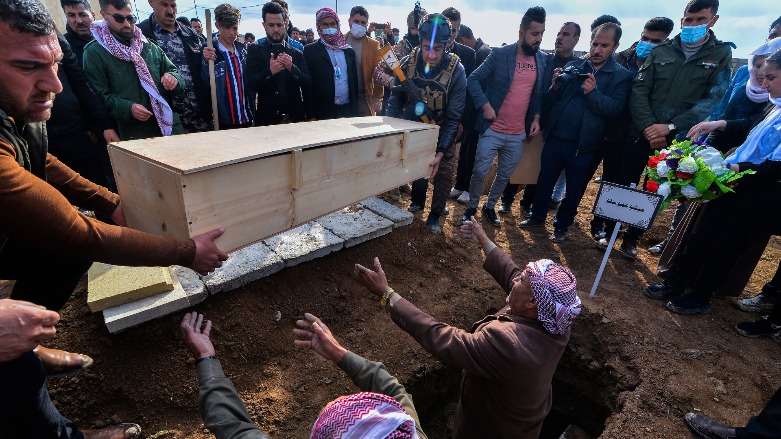More identified remains of Ezidis to be returned to Kocho, Shingal, on Dec. 9: UNITAD

ERBIL (Kurdistan 24) – Dec. 9 will mark the return of identified remains of Yezidis (Ezidis) killed en-masse by ISIS in 2014, the United Nations Investigative Team to Promote Accountability for Crimes Committed by Da'esh/ISIL (UNITAD) said on Friday.
The announcement came during a meeting of Iraqi representatives, UNITAD officials, and members of the Ezidi community, in an outreach event facilitated by UNITAD to engage with Ezidis on the matter.
This would be the second undertaking of its kind, with the first one being conducted in February, when the remains of victims were returned to their area of origin, Kocho—a village in the Ezidi district of Sinjar (Shingal), Nineveh province—for reburial.
Related Article: Sinjar re-buries remains of more than 100 Yezidi 'Kocho victims'
"This second return of remains to [Kocho] helps to bring us one step closer to providing some closure to families of victims of ISIL international crimes," UNITAD Chief of Staff Gerald Casey said.
During the gathering, Kurdistan Regional Government (KRG) coordinator for international advocacy Dr. Dindar Zebari thanked UNITAD for organizing the outreach event, the statement added.
Zebari "reiterated that the KRG will continue to provide utmost support to the process of identifying victims," expressing his hope that the return of the victims' remains brings closure to their families.
He also called for intensifying efforts to "support the rapid identification of more victims."
ISIS's emergence and its violent assault on the Ezidi-majority city of Shingal in 2014 led to the displacement of hundreds of thousands of Ezidis. Most of them fled to the Kurdistan Region, while others resettled to neighboring countries in the region or Western states.
Others were not as lucky and remained stranded in the war zone, where they were subjected to atrocities and mass executions at the hands of the extremist group for years.
ISIS militants forced women and girls into sexual slavery; kidnapped their children; forced religious conversions; executed scores of men; and abused, sold, and trafficked women and girls across the areas they controlled in Iraq and Syria. Thousands of Ezidis remain missing.
